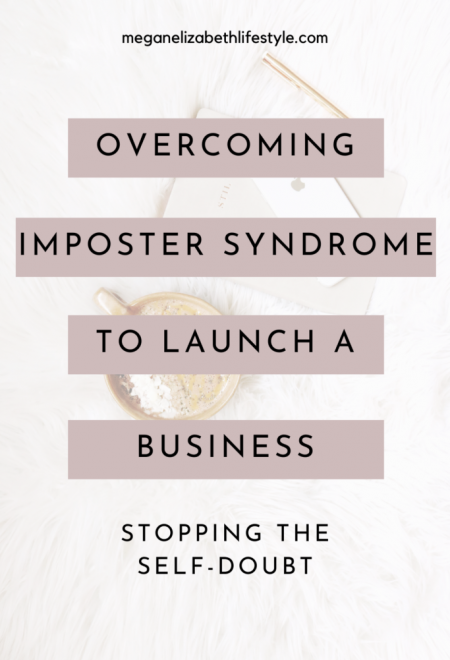Overcoming Imposter Syndrome to Launch a Business

If you have visited the blog recently, you maybe noticed a couple of changes. In particular, a page called Hearth Content (disclaimer: possible AD for my own brand?). Hearth is the home of my freelance content services. I have worked as a freelance writer and content creator ever since graduating in Autumn 2020, but it took until 2021 to make this side of my life have a proper online presence. Why? Feelings of self-doubt and imposter syndrome crept in. I wondered whether my work was good enough or if even I had the ability to launch my own business. Something was holding me back and I couldn’t quite put my finger on it until I started learning more about imposter syndrome. Here’s my thoughts on overcoming imposter syndrome and how to identify it.
What is imposter syndrome?
There are variations in how imposter syndrome is interpreted, but the theme throughout is the concept of not feeling worthy of your success or deserving of the things in your life. It can involve feelings of self-doubt and lack of self-confidence or self-belief. Forbes did an interesting study in America which found that 75% of women felt like they had experience imposter syndrome in some form during their life. The study also suggested that the concept is experienced more in women based on historical gender stereotyping and gender roles in society. However, imposter syndrome can affect anyone and not just in the workplace.
How to identify imposter syndrome?
There are mixed reports as to whether there are different types of imposter syndrome or whether people react and experience it in different ways. The types proposed by expert Valerie Young, PhD are commonly reported though, and can help you to recognise if imposter syndrome is something affecting your life:
- The Perfectionist: Someone who feels as if they need to do everything perfectly or else they’ve failed. And if they aren’t perfect, they have an overwhelming feeling of self-doubt.
- The Superhero: Someone who feels as if they’re a fraud, either at work or in a relationship, and so they work extra hard to hide their supposed inadequacy. Often, the overload in work or stress of not measuring up is damaging to their mental health.
- The Natural Genius: Someone who judges their worth by how easily something comes to them. If they need to work to master a task or to make a friend, they feel ashamed.
- The Soloist: Someone who feels that they need to do everything themselves. If they need to ask for help, they feel incompetent.
- The Expert: Someone who judges their worth by how much they know. They constantly feel as if they’re not smart enough, and fear being exposed as unknowledgeable.
Tips for overcoming imposter syndrome
Acknowledging its presence
I think identifying the presence of imposter syndrome is the first step in overcoming it. The realisation and acceptance of its presence means you can then take further steps to beat it, so that you can feel more confident in your self and share your true potential.
Talk about your feelings
Talking about how you feel doesn’t necessarily come naturally to everyone, but talking therapy is known to be beneficial for mental health in general. It is important to remember that you are not alone. When it is just you and your thoughts, you have a subjective viewpoint. Sharing your feelings and getting someone else’s objective views will make you realise what is in fact reality.
Celebrate yourself
I feel as humans we can have a hard time celebrating ourselves and our accomplishments, Practising self-love and celebrating your wins helps to improve self-belief and respect.
Use journaling to explore your feelings
I’m a huge fan of journaling and its power as a wellbeing and self-discovery tool. Journaling lends itself to overcoming imposter syndrome in so many ways, but here are a few of my favourite journal prompts:
- Write down facts and what is actually reality to show yourself why you are worthy. This could be listing all your work experience and qualifications if you are experiencing imposter syndrome in your career.
- Record when you receive compliments to remind yourself that you are amazing at what you do and other people know that as well.
- Write down your daily wins no matter how big or small and the things you are grateful for each day. Become accustomed to recognising your achievements.
Meet Hearth
So what is Hearth?
Hearth was born after wanting to combine my passion areas of wellbeing and sustainable living with my content creation work.
Hearth Content supports wellbeing and sustainability brands and freelancers wanting to make a positive impact in the world, but don’t have the time to write or don’t quite know how to put their content into the right words.
Writing has always been a love of mine and in recent years has become a powerful wellbeing tool. In addition to content creation advice and support, Hearth also focuses on how to use writing to benefit your wellbeing and its role in self-discovery and personal development.
Hearth is also on Instagram, where you can find even more resources on content creation, writing for wellbeing, and more.
The Megan Elizabeth blog will still be keeping the same themes of wellbeing, sustainability, and chronic illness, alongside the realities of running a business with a chronic health condition, mindful content creation advice, and even more content to help boost your wellbeing.
Save and pin so you can return later
Have you ever experienced imposter syndrome or other areas of life? Did you do anything to help overcome it?
Megan x





